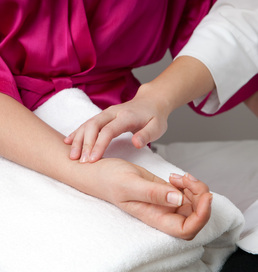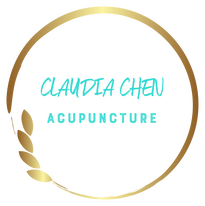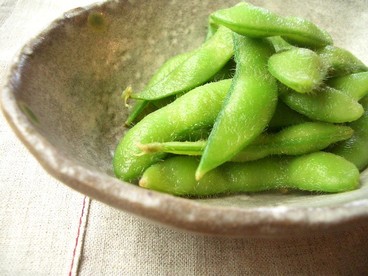TRADITIONAL CHINESE MEDICINE DIAGNOSIS
Every treatment begins with a consultation. There are over 350 acupuncture points in the body, and the appropriate diagnosis will allow Claudia to determine which points should be selected for your treatment. Point selection is customized to the patient, so just because you have abdominal discomfort does not mean you will get the same treatment as someone else with abdominal pain.
Traditional Chinese Medicine addresses the root cause of a patient's ailment, not just the symptoms. This means a thorough consultation may involve questions that may do not seem to be related to your concern. Questions regarding sleep patterns, urination, stress levels, diet, emotions, family history, bowel movements, and physical activity are some of the things that may be asked.
Traditional Chinese Medicine addresses the root cause of a patient's ailment, not just the symptoms. This means a thorough consultation may involve questions that may do not seem to be related to your concern. Questions regarding sleep patterns, urination, stress levels, diet, emotions, family history, bowel movements, and physical activity are some of the things that may be asked.

Tongue Diagnosis
Don't be surprised if you are asked to stick out your tongue. This is a normal part of Traditional Chinese Medicine diagnosis. Looking at slight differences in the colouring, coating, moisture content, and shape of the tongue can actually help indicate what is going on inside the body.
A pale tongue for instance might suggest a weakness in blood production. Whereas, teethmarks on the side of the tongue is a typical sign of "Spleen Qi Deficiency", and possible digestive deficiencies.
Don't be surprised if you are asked to stick out your tongue. This is a normal part of Traditional Chinese Medicine diagnosis. Looking at slight differences in the colouring, coating, moisture content, and shape of the tongue can actually help indicate what is going on inside the body.
A pale tongue for instance might suggest a weakness in blood production. Whereas, teethmarks on the side of the tongue is a typical sign of "Spleen Qi Deficiency", and possible digestive deficiencies.

Taking the Pulse
In Traditional Chinese Medicine, taking the pulse is a form of art. An acupuncturist does not count the beats the way a Western Doctor does when he/she takes your pulse. Instead, an acupuncturist looks at subtle qualities such as the pulse rhythm and strength.
A pulse may be described as "choppy", "wiry", "thready", "soggy", or even "slippery". Reading the pulse is a bit like reading a music sheet. And the song that plays? That is another clue towards finding out your diagnosis.
|
Nutritional Advice
Nutritional advice is given specific to the individual and his/her presenting condition. The consultation and tongue and pulse diagnosis will help Claudia determine what foods are right for you. Claudia may also conduct 'Blood Typing' to determine detailed food suggestions that can improve digestive conditions or assist with weight loss. If Claudia feels that nutrition is something that should be addressed for your health concern, she will go over it in your treatment plan. Food therapy in Traditional Chinese Medicine is slightly different from Western nutritional therapy. Claudia may discuss incorporating foods with "warming" or "cooling" properties, or avoiding "damp" foods to benefit your condition. |

